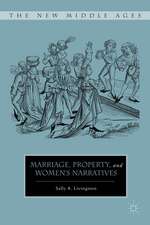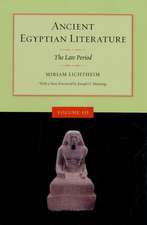British Women Writers and the Reception of Ancient Egypt, 1840-1910: Imperialist Representations of Egyptian Women
Autor Molly Youngkinen Limba Engleză Hardback – 20 ian 2016
| Toate formatele și edițiile | Preț | Express |
|---|---|---|
| Paperback (1) | 383.33 lei 6-8 săpt. | |
| Palgrave Macmillan US – 9 feb 2016 | 383.33 lei 6-8 săpt. | |
| Hardback (1) | 389.49 lei 6-8 săpt. | |
| Palgrave Macmillan US – 20 ian 2016 | 389.49 lei 6-8 săpt. |
Preț: 389.49 lei
Nou
Puncte Express: 584
Preț estimativ în valută:
74.53€ • 77.82$ • 61.54£
74.53€ • 77.82$ • 61.54£
Carte tipărită la comandă
Livrare economică 15-29 aprilie
Preluare comenzi: 021 569.72.76
Specificații
ISBN-13: 9781137570765
ISBN-10: 1137570768
Pagini: 229
Ilustrații: XXVII, 229 p.
Dimensiuni: 140 x 216 x 16 mm
Greutate: 0.45 kg
Ediția:1st ed. 2016
Editura: Palgrave Macmillan US
Colecția Palgrave Macmillan
Locul publicării:New York, United States
ISBN-10: 1137570768
Pagini: 229
Ilustrații: XXVII, 229 p.
Dimensiuni: 140 x 216 x 16 mm
Greutate: 0.45 kg
Ediția:1st ed. 2016
Editura: Palgrave Macmillan US
Colecția Palgrave Macmillan
Locul publicării:New York, United States
Cuprins
Introduction
1. Bound by an English Eye: Ancient Cultures, Imperialist Contexts, and Literary Representations of Egyptian Women
2. Acting as "the right hand . . . of God": Christianized Egyptian Women and Religious Devotion as Emancipation in Florence Nightingale's Fictionalized Treatises
3. "[T]o give new elements . . . as vivid as . . . long familiar types": Heroic Jewish Men, Dangerous Egyptian Women, and Equivocal Emancipation in George Eliot's Novels
4. "[W]e had never chosen a Byzantine subject . . . or one from Alexandria": Emancipation through Desire and the Eastern Limits of Beauty in Michael Field's Verse Dramas
5. The "sweetness of the serpent of old Nile": Revisionist Cleopatra and Spiritual Union as Emancipation in Elinor Glyn's Crosscultural Romances
6. "My ancestor, my sister": Ancient Heritage Imagery and Modern Egyptian Women Writers
Afterword
1. Bound by an English Eye: Ancient Cultures, Imperialist Contexts, and Literary Representations of Egyptian Women
2. Acting as "the right hand . . . of God": Christianized Egyptian Women and Religious Devotion as Emancipation in Florence Nightingale's Fictionalized Treatises
3. "[T]o give new elements . . . as vivid as . . . long familiar types": Heroic Jewish Men, Dangerous Egyptian Women, and Equivocal Emancipation in George Eliot's Novels
4. "[W]e had never chosen a Byzantine subject . . . or one from Alexandria": Emancipation through Desire and the Eastern Limits of Beauty in Michael Field's Verse Dramas
5. The "sweetness of the serpent of old Nile": Revisionist Cleopatra and Spiritual Union as Emancipation in Elinor Glyn's Crosscultural Romances
6. "My ancestor, my sister": Ancient Heritage Imagery and Modern Egyptian Women Writers
Afterword
Recenzii
“British Women Writers and the Reception of Ancient Egypt offers a new perspective on a set of authors and texts which will help to open up the study of Victorian receptions of ancient Egypt, as well as being of interest to scholars and students of nineteenth-century literature, postcolonialisms, and gender studies.” (Laura Eastlake, English Literature in Transition, Vol. 60 (4), 2017)
Notă biografică
Molly Youngkin is Professor of English at Loyola Marymount University, Los Angeles, USA. Her previous publications include Feminist Realism at the Fin de Siècle: The Influence of the Late-Victorian Woman's Press on the Development of the Novel (2007) and an annotated edition of Sarah Grand's 1888 novel Ideala (2008).
Textul de pe ultima copertă
This book shows how British women writers' encounters with textual and visual representations of ancient Egyptian women such as Hathor, Isis, and Cleopatra influenced how British women represented their own desired emancipation in novels, poetry, drama, romances, and fictional treatises. Molly Youngkin argues that canonical women writers such as Florence Nightingale and George Eliot—and less canonical figures such as Katharine Bradley and Edith Cooper (who wrote under the name 'Michael Field') and Elinor Glyn—incorporated their knowledge of ancient Egyptian women's cultural power in only a limited fashion when presenting their visions for emancipation. Often, they represented ancient Greek women or Italian Renaissance women rather than ancient Egyptian women, since Greek and Italian cultures were more familiar and less threatening to their British audience. This notable distinction opens up discussions about the history of British women, their writing, and the British view on gender inthe nineteenth and early twentieth centuries.
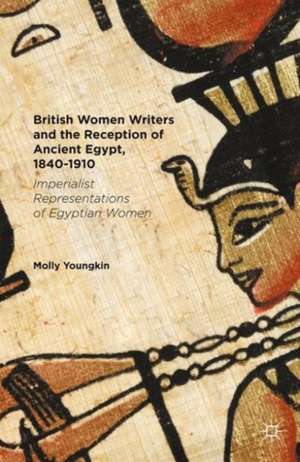
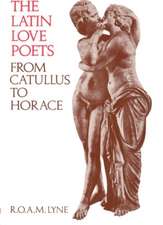
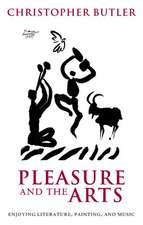


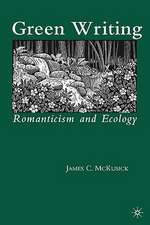
![The [European] Other in Medieval Arabic Literature and Culture: Ninth-Twelfth Century AD](https://i0.books-express.ro/bt/9780230109407/the-european-other-in-medieval-arabic-literature-and-culture.jpg)
